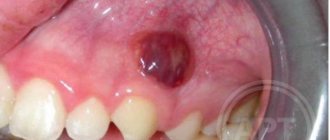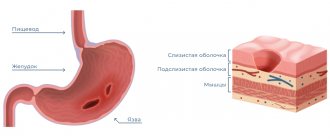Various strange and unusual tastes that appear in the mouth are alarming and make you wonder if everything is okay with the body. For example, what does the taste of salt in your mouth indicate? Doctors note that the feeling of excess salt cannot be considered normal.
Cardiologist, therapist, endocrinologist Tatyana Romanenko told AiF.ru about what diseases such a taste in the mouth indicates and what needs to be done .
When we talk about the taste of salt in the mouth, we must first of all exclude the most important, serious and dangerous causes of this pathological phenomenon.
Diseases of the ENT organs and respiratory tract
A taste of salt in the mouth sometimes occurs with the development of infectious and inflammatory diseases of the upper and lower respiratory tract. When the paranasal sinuses become inflamed, mucus is actively secreted. It flows down the back of the throat, constantly causing a cough. When it enters the mouth, a salty taste is felt.
Runny nose
A runny nose due to a cold or allergy causes excess mucus in the nasal passages to flow from the back of the nose down the throat. The presence of this mucus can cause your saliva to be saltier than normal. Runny nose remedies can help clear your nasal passages and thus eliminate the salty taste in your mouth.
Bacterial sinusitis, sinusitis, allergic rhinitis, tonsillitis, pharyngitis can occur in both acute and chronic forms. Regardless of the nature of the disease, mucus appears. It constantly bothers you when it gets into your mouth, changing your taste sensations.
The reason is tears
Another interesting reason may be related to the pathology of the tear ducts. It would seem, how are the eyes and the salty taste in the mouth connected? In fact, if there is a disruption in the functioning of the tear ducts, increased secretion of tears may occur; on the other hand, the normal passage of this tear content is also disrupted. As a result, the tear enters the nose, then it flows down the back wall of the throat, and a feeling of saltiness occurs in the mouth. Pathology of the lacrimal glands (ducts) can provoke a salty taste in the mouth.
Why does a metallic taste appear in the mouth? More details
Bleeding gums
There is a taste of salt and you don’t know what could be causing it? The cause of this phenomenon could be bleeding gums. It could arise against the background of trauma to the mucous membrane or as a result of the development of gingivitis or periodontitis.
Blood is close in its ionic composition to sea water. It contains sodium and chloride ions, due to which people with a similar pathology experience a salty taste.
Your mouth may also feel salty due to the fact that you recently had a tooth removed. After all, after this procedure, a wound has formed, which first bleeds, and then ichor is released from it for a long time. Damaged tissues need time to heal, after which the unpleasant symptom will no longer bother you.
Blood in the mouth
One of the most important and yet common causes of this phenomenon is bleeding. Naturally, since we are talking about the mouth, then most often it arises from the gums. But increased gum bleeding can be caused by a number of factors.
Question answer
What causes the bitter taste in the mouth? One of the most common problems is inflammatory infectious diseases of the oral cavity. The reason may be either untreated, not fully sanitized teeth, or inflammatory diseases of the gums and tonsils themselves. These could also be neoplasms. That is, the problem lies in all local processes.
Another fairly global problem that we should always remember is bleeding gums due to changes in blood clotting. These are various types of thrombophilia, for example. Of course, there will be not only a salty taste in the mouth, but also other symptoms of hemorrhagic syndrome.
Another rather serious reason is blood disease, in particular those that are accompanied by bleeding. This could be thrombocytopenia, anemia, etc. That is, in this case, salty in the mouth is the taste of blood, and such a condition always requires prompt differential diagnosis and initiation of treatment.
Taking medications
All medications affect metabolism to one degree or another. This may manifest itself as foreign tastes in the mouth - this side effect is safe, but sometimes irritating to the patient. This feature is usually indicated in the instructions if you carefully read the section on side effects. Most often, a salty taste is caused by: Unflavored lozenges; Sprays and solutions for rinsing the mouth and throat; Antibiotics; Antihistamines (antiallergic) drugs; Some hormonal medications; Chemotherapy drugs used in oncology; Antidepressants. Particular attention should be paid to diuretics. The salty taste may be due to the characteristics of the active substance or to incipient dehydration. When treating with them, you cannot change your drinking regimen without permission; this will reduce the effectiveness of therapy, so you need to consult a doctor and pay attention to the presence or absence of other signs of dehydration.
Infections
Caries, gingivitis - each such infection without proper treatment can progress and lead to serious complications and consequences that affect many organs and systems.
With serious gum diseases such as periodontitis, patients are concerned about the following symptoms:
- tooth mobility;
- the formation of pathological gum pockets and purulent discharge from them;
- pain, burning and other unpleasant sensations in the gums;
- persistent bad breath;
- formation of massive dental plaque.
A fungal infection, which is characterized by the appearance of a white cheesy coating on the mucous membrane, can also provoke a salty taste in the mouth. With moderate and severe infection, patients may complain of a change in the taste of their usual food and the appearance of off-flavors.
HPV, the human papillomavirus, can infect the mouth and cause a strange taste in the mouth. If the diagnosis was not carried out on time and there is no treatment, this can cause a metallic and salty taste in the mouth.
Diagnostics
Diagnostic methods are selected depending on the person’s concomitant health complaints. The symptoms listed above will help you understand which specialist to seek help.
To begin with, you should contact a therapist , who will suggest the further path of examination.
Important! If, during regular hygiene measures, an unpleasant odor persists in the mouth, and even more so if blood is found in the oral cavity, this is a good reason to visit the dentist.
It is necessary to exclude or confirm and treat gingivitis, periodontitis or other oral diseases.
You should also go to the dentist if your salivary glands are swollen to check whether the problem is inflammation.
Thrush that appears in the oral cavity is also diagnosed and treated by this specialist.
If you have a runny nose, cough and a constant desire to improve your throat, you should go to an ENT specialist . People turn to him for constant nasal congestion, which often indicates rhinitis.
Abdominal pain and other tastes in the mouth are a reason to consult a gastroenterologist. Most likely, gastroscopy and/or ultrasound of the abdominal organs will be prescribed.
If you have weakness, constant pallor, noise in the ears, or spots before your eyes, you need to check your blood and rule out anemia.
The doctor prescribes a general blood test and, depending on its results, additional tests to clarify the type of anemia.
Need to know! Constant headaches, vomiting, and lack of coordination accompany the occurrence of tumors and other diseases of the brain and nerves.
Therefore, in such a situation, it is better to consult a therapist, neurologist or oncologist.
The doctor will conduct tests of coordination and reflexes, and may prescribe an MRI or SCT.
Saltiness of the lips when taking medications can be prescribed in the instructions for the drug.
You can also ask the doctor who prescribed the medicine about this.
Diseases of the salivary glands
A salty taste in the mouth that is not associated with food intake may be one of the signs of diseases of the salivary glands.
When the salivary gland becomes inflamed, its function is disrupted, resulting in changes not only in the amount of saliva produced, but also in its composition. Against the background of inflammatory processes of the salivary glands, the patient may complain of a persistent salty taste in the mouth. Associated symptoms of inflammatory processes are:
- increased salivation;
- pain in the lower jaw;
- enlargement and tenderness of the cervical lymph nodes.
- Gastroesophageal reflux disease (GERD)
GERD occurs when the esophageal sphincter weakens, allowing bile or hydrochloric acid to back up into the esophagus. This leads to a burning sensation behind the breastbone, along with other symptoms. GERD can also cause an unusual taste in the mouth, often described as bitter, sour, or salty.
Allergy
An allergic reaction is accompanied by the release of a whole cascade of substances. There are several mechanisms due to which salty taste develops. It is caused by mucus and tear fluid entering the mouth during allergic rhinoconjunctivitis, a decrease in the concentration of fluid in saliva, and the ingress of substances involved in the development of an allergic reaction. This is not the most striking symptom of an allergy, and there is no need to specifically fight it - the salty taste in the mouth will go away on its own after the allergic reaction is over.
Rare reason
Quite rarely, but it still happens, the reason lies in the pathology of the nervous system, when a change in taste perception is noted. In particular, such sensations can occur after suffering traumatic brain injuries, acute cerebrovascular accidents, chronic cerebral circulatory disorders and, of course, infectious diseases. Any viral infections can provoke a perversion of taste disturbance, and this can contribute to the appearance of such a salty taste in the mouth.
Hormones are acting up
Hormonal problems, particularly diabetes, can also lead to dry mouth. Sometimes it may additionally be a taste of acetone, since diabetes mellitus is often accompanied by damage to the kidneys and central nervous system.
Brain pathologies This is the rarest cause of the symptom. Receptors on the tongue respond to the chemical composition of food, but the concept of taste is formed in the cerebral cortex. This means that with normally functioning receptors and nerves, a healthy oral cavity and neighboring organs, the functioning of the part of the cortex responsible for the perception of taste may be disrupted. Such disorders can be observed in brain tumors, epilepsy, and a number of mental illnesses. If the patient does not have such a diagnosis or a history of head injuries, the doctor is unlikely to immediately think about such a cause of the salty taste - it is very unlikely.
Treatment
If nothing bothers you other than the taste of salt on your lips, you should try the following:
- brush your teeth regularly,
- use dental floss,
- use mouth rinses ,
- drink more water (from eight glasses a day if there are no contraindications),
- change your diet
- exclude or reduce fast food, snacks, fried, fatty, salty, spicy.
Remember! If this does not help or there are other symptoms that make you worry, you should see a doctor.
Abuse of salty foods
Why are your lips salty and your mouth taste like salt? The most common reason is that you ate salty food. Remember that salt in large quantities is harmful to the body, it negatively affects the cardiovascular system, kidneys and liver, stomach, retains fluid in the tissues, and at the same time contributes to poor absorption of calcium, which is so beneficial for our teeth and bones. Salt accelerates the aging of the body and impairs the functioning of blood vessels.
As an alternative to this product, scientists advise adding healthy and safe natural substitutes to your food - celery, herbs and seasonings, garlic, dried seaweed. To preserve the salts found in natural foods, it is recommended to steam them rather than fry or boil them.
Oncological diseases
Patients with cancer often complain of a salty taste in the mouth, which does not disappear even after brushing their teeth. This in most cases is not due to the disease itself, but to the treatment that the patient receives. Drugs for chemotherapy and radiation therapy can have a rather aggressive effect on all tissues and cells of the body, including taste buds. Inhibition of the receptors leads to the fact that the taste is distorted and the patient may experience a salty taste in the mouth. Among the drugs that can cause such changes in taste are Methotrexate and Vincristine.
Oral hygiene
A common cause of a salty taste in the mouth is poor oral hygiene. If a person does not brush his teeth well enough, if plaque forms, all this contributes to the development of pathological microflora, the waste products of which will give this unpleasant salty taste.
Also, the appearance of taste is influenced by the presence of an infectious process in the oral cavity - the formation of tartar, fistulas, chronic tonsillitis.
Taste of illness. How to determine your diagnosis by the taste in your mouth Read more
Why does the problem occur in men?
There is a salty taste in my mouth. What is it and why does it occur in men? This phenomenon often occurs in athletes or people engaged in exhausting physical labor. During physical overload or training, blood pressure rises and blood flows stronger. And as we have already found out, the blood contains sodium, chloride and iron ions. This explains why, after physical labor or active sports, a person has salty lips and a feeling of salt in the mouth.
In the morning after a stormy party or get-togethers with friends, you wonder why there is a taste of salt in your mouth? The reason may lie in alcohol abuse. Don't forget that alcoholic drinks have a strong dehydrating effect. An excess of alcohol in the blood causes intoxication and dehydration of the body. To restore the balance of fluids and beneficial minerals in the body, be sure to drink plenty of distilled water and mineral water in the following days.
Gastrointestinal tract and dehydration
A salty taste in the mouth often occurs with diseases of the gastrointestinal tract. Such a common pathology as gastroesophageal reflux disease causes a similar problem. First of all, of course, this is the appearance of a feeling of acidity, but some people may also complain of saltiness in the mouth.
Often, the taste of salt can be felt when the body is dehydrated, for example after some kind of infection. The effect is especially enhanced if, against the background of a lack of moisture, there is an excess of alcohol and caffeine-containing drinks. A characteristic aftertaste may arise here. Fluid imbalance causes more sodium chloride to appear in saliva. Hence the taste of salt in the mouth. Any loss of fluid and blood thickening are accompanied by this symptom.
Why does it occur in women?
If the specific taste in the mouth and lips in women does not cause a cough due to problems with the ENT organs or other listed problems, then the unpleasant symptoms are associated with the menstrual cycle or hormonal imbalance. Pregnant women especially often complain about this condition. Temporary restructuring of the body during childbearing followed by breastfeeding contributes to changes in taste buds.
Salinity also occurs due to dehydration caused by toxicosis. A woman may complain of constant nausea, vomiting, weakness, dry mouth, and dizziness. In this case, it is advisable to eat natural food with a minimum amount of dyes, drink drinks that alleviate the condition, and eat sour fruits that smooth out the symptoms of nausea and strange taste in the mouth.
Dysgeusia often develops in pregnant women. This is a taste disorder under the influence of hormones. This phenomenon is temporary and disappears without a trace after delivery.
Salt in the mouth of women can appear as a result of sudden mood swings, crying, or tears. In older representatives of the fairer sex, a salty taste appears during menopause, when hormonal changes occur intensively. It is often accompanied by dry mouth, inability to swallow food, burning, and itching.
Related posts:
- The whole truth about real depression Depression is not just a bad mood, but serious changes...
- Benefits of Stress Stress is a normal defense mechanism that the human body needs...
- Constant fear and anxiety in children It is common for every person to experience fear, anxiety, and anxiety. But, unlike...
- Mysophobia is a pathological fear of dirt and germs. Mysophobia is a mental illness, the symptom of which is a strong, irresistible fear...











